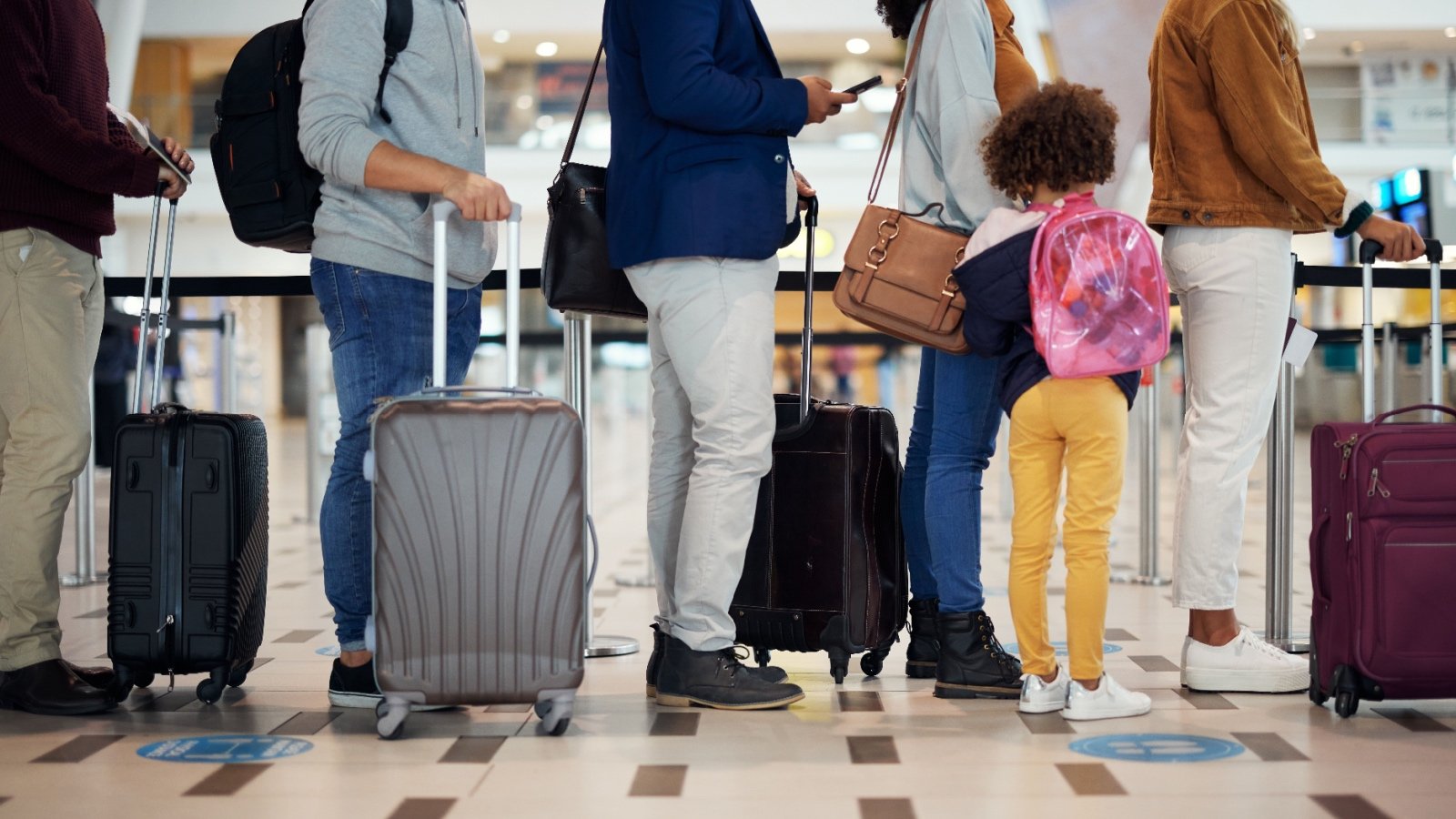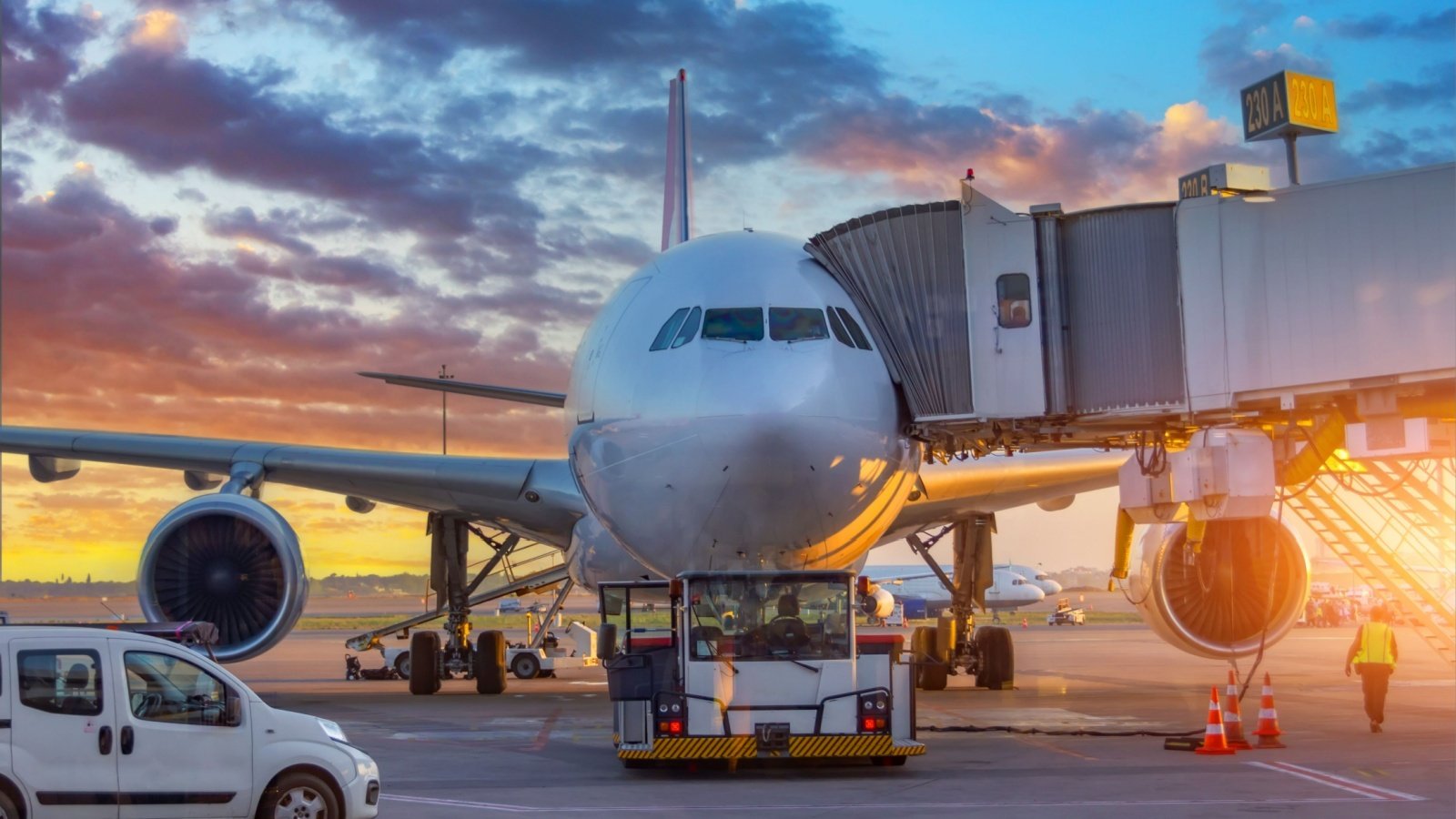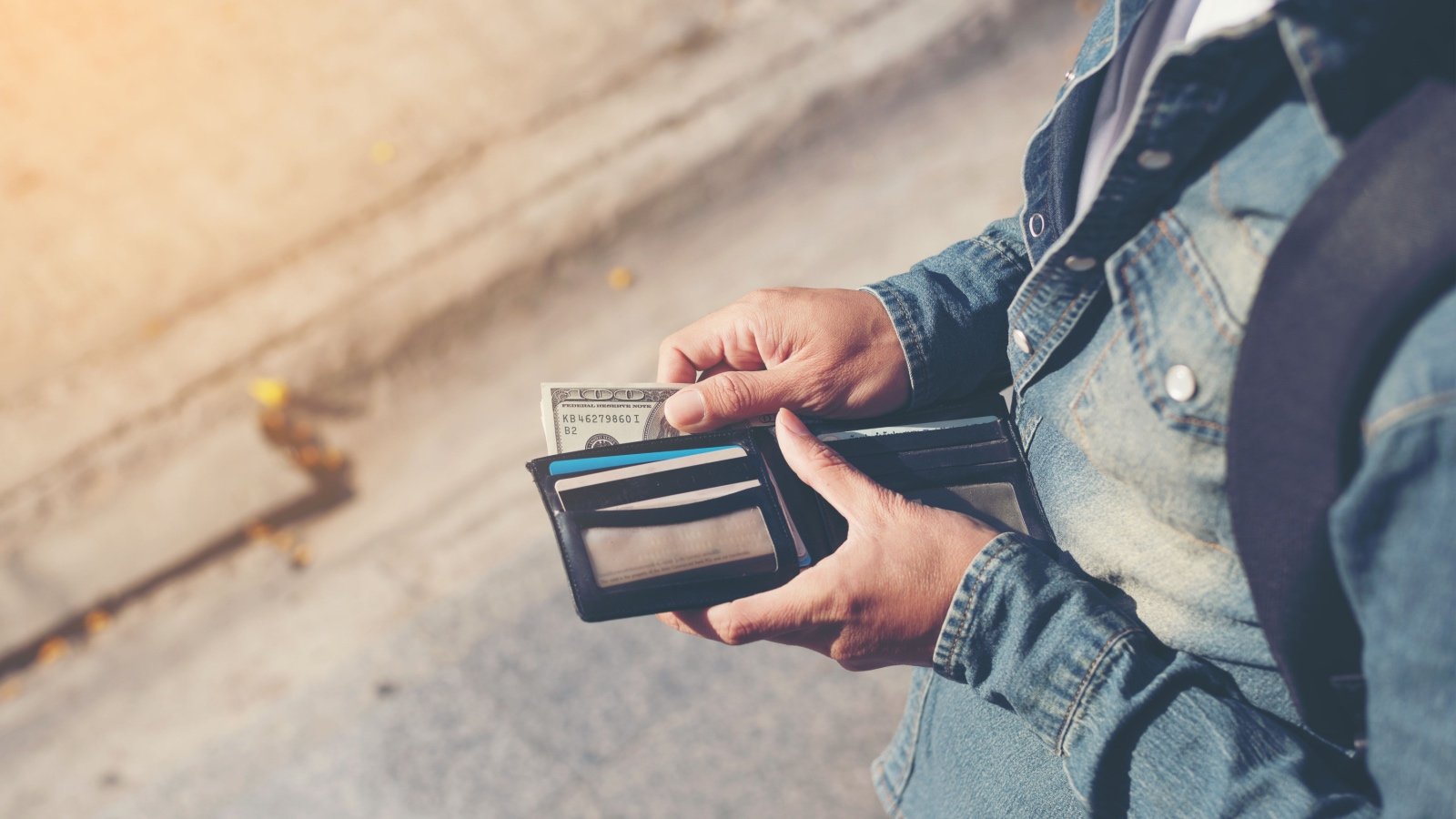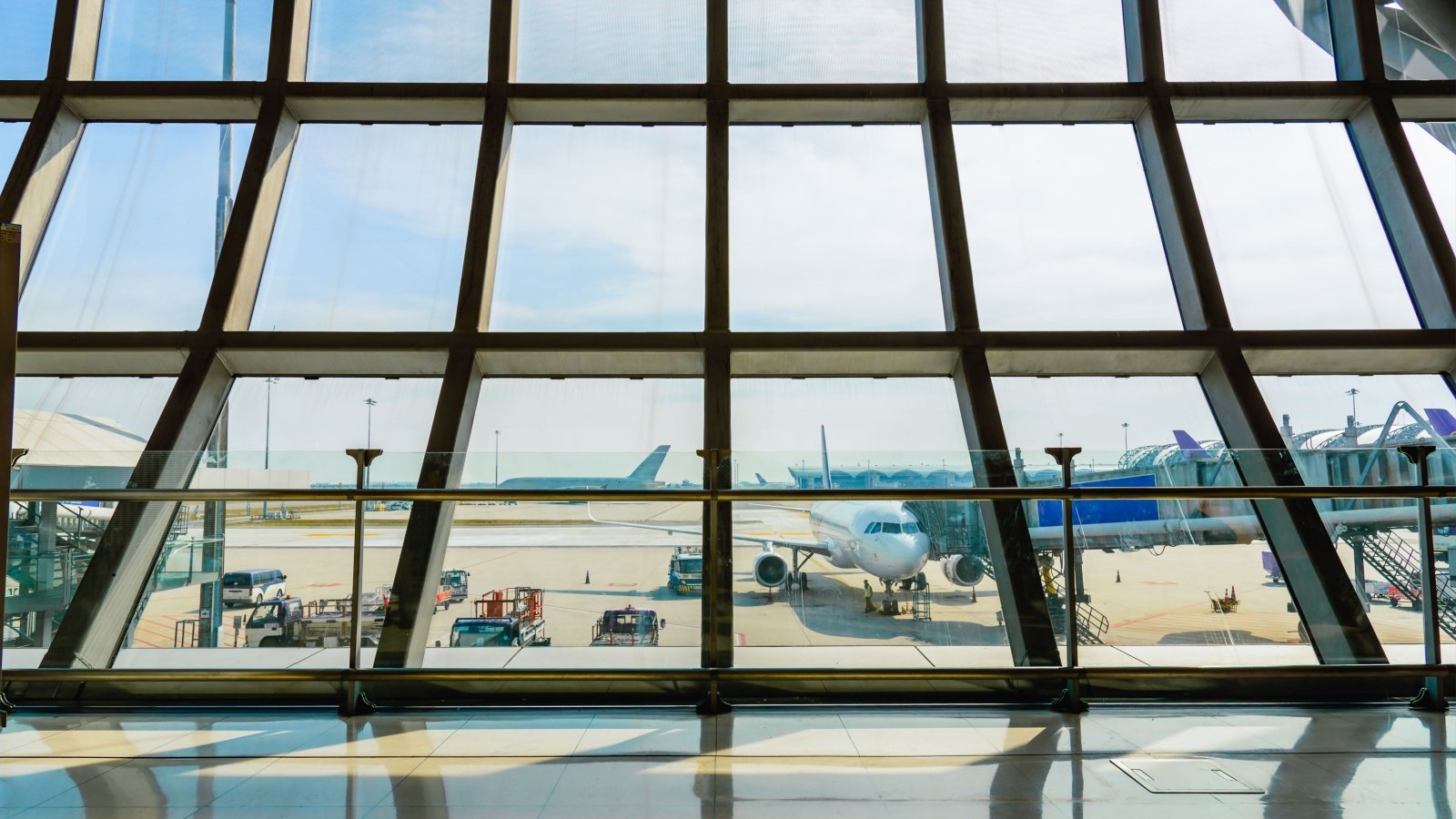Want to know what annoys TSA agents the most? Get cozy and grab a beverage—it’s a long list. From improperly packed bags to forgetting essential documents, these errors can cause significant delays. Understanding what not to do at the airport security checkpoint will earn you a nod of appreciation from the TSA staff. Check out what they’d like travelers to avoid.
Not Preparing Documents

Failing to have your boarding pass and ID ready can slow down the entire security line. TSA agents appreciate passengers who are organized and prepared. Always keep these documents easily accessible to expedite the process.
Complicated Shoes

Opting for shoes that are difficult to remove, such as boots with multiple laces or high heels, can be a hassle. TSA checkpoints require quick shoe removal to keep lines moving. Slip-on shoes are a traveler’s best friend in this situation.
Talking on the Phone

Using your phone while in the security line can be distracting and slow you down. TSA agents appreciate when passengers are attentive and ready to move through the process. Put your phone away and focus on the screening.
Packing Prohibited Items

Including items such as large scissors, certain tools, and prohibited substances in your carry-on will lead to delays. TSA agents will have to search your bag and remove these items. Check the TSA’s prohibited items list before packing.
Forgetting to Declare Items

Not declaring items that require disclosure, like medical devices or certain foods, can lead to issues. TSA agents need to be informed of these items to ensure proper handling. Always declare necessary items to avoid confusion and delays.
Metal Accessories

Belts, watches, and other metal accessories can trigger metal detectors. It’s best to remove these items and place them in your carry-on before screening. This helps you pass through security without setting off alarms.
Packing Liquids Incorrectly

Bringing liquids that exceed the 3.4-ounce limit or not placing them in a clear, quart-sized bag is a common mistake. This oversight often leads to delays and confiscation of items. Always follow the 3-1-1 rule for liquids to avoid problems.
Forgetting to Empty Pockets

Leaving items like keys, coins, and phones in your pockets can trigger alarms and slow down the screening process. TSA agents need you to empty your pockets completely before going through the scanner. Using a small tray for your pocket items can save time.
Not Removing Electronics

Failing to take out laptops, tablets, and other large electronics from your carry-on can cause delays. These items need to be placed in separate bins for x-ray screening. Be ready to remove them quickly to keep the line moving.
Ignoring TSA Rules

Disregarding TSA rules and instructions can frustrate agents and fellow travelers. Whether it’s trying to bring prohibited items or not following the line’s flow, non-compliance causes unnecessary delays.
Arguing with Agents

Engaging in arguments or becoming confrontational with TSA agents can escalate situations and cause significant delays. Remember that TSA agents are enforcing rules to ensure everyone’s safety. Stay calm and cooperative to facilitate a smoother process.
Excessive Jewelry

Adorning yourself with lots of jewelry can set off metal detectors, necessitating additional screening. To avoid this, remove jewelry and place it in your carry-on before reaching the checkpoint.
Bringing Wrapped Gifts

Carrying wrapped gifts in your carry-on can be problematic if they need to be inspected. TSA agents might have to unwrap them to check the contents. Consider using gift bags or wrapping gifts after you arrive at your destination.
Traveling with Uncharged Electronics

Bringing electronics that cannot be powered on if requested can raise security concerns. TSA agents may ask you to turn on your devices to prove they are not threats. Ensure your devices are charged before you arrive at the airport.
Having Inaccessible Liquids

Storing your quart-sized bag of liquids deep in your luggage can slow down the process. TSA agents prefer that you place this bag in an easily accessible part of your carry-on. This way, you can quickly remove it during screening.
Not Removing Outerwear

Failing to take off jackets, coats, or bulky sweaters before going through security can cause delays. These items often need to be screened separately. Removing them beforehand helps keep the line moving smoothly.
Carrying Cash

While not prohibited, carrying large amounts of cash can raise suspicion and lead to additional questioning. TSA agents may ask for an explanation and conduct a more thorough search. It’s advisable to carry only what you need for the trip.
Traveling with Pets

Bringing pets through security without proper preparation can cause delays. TSA agents need to inspect carriers, and pets should be leashed or harnessed. Familiarize yourself with TSA’s pet travel guidelines to ensure a smooth process.
Bringing Overpacked Bags

Overpacked carry-on bags can be difficult to close and handle, slowing down the screening process. TSA agents may need to inspect these bags more thoroughly. Pack efficiently to avoid issues at the checkpoint.
TSA Pre-Check

Assuming that TSA Pre-Check status means you don’t need to follow any security rules is a mistake. While it offers expedited screening, certain items still need to be removed. Familiarize yourself with what is required even if you have TSA Pre-Check.
Complicated Hairstyles

Intricate hairstyles with pins or metal accessories can set off alarms and require additional screening. TSA agents may need to inspect your hair more closely. Opt for simple hairstyles to make the process smoother.
Ignoring Liquid Limits

Buying duty-free liquids without considering TSA’s liquid limits for connecting flights can lead to confiscation. These items still need to comply with the 3.4-ounce rule when passing through security again. Plan your duty-free purchases accordingly.
Forgetting Baby Items

Forgetting to remove items like baby formula or breast milk for separate screening can cause delays. TSA agents have specific procedures for these items. Be prepared to take them out and inform the agents.
Metal-Studded Clothing

Clothing with metal studs or embellishments can trigger metal detectors. TSA agents might need to conduct a more thorough pat-down. Choose simpler clothing to avoid unnecessary screening.









You are a very smart individual!
I like what you guys are up too. Such intelligent work and reporting! Keep up the superb works guys I?¦ve incorporated you guys to my blogroll. I think it will improve the value of my site 🙂
Hello! I just would like to give a huge thumbs up for the great info you have here on this post. I will be coming back to your blog for more soon.
I’ll immediately snatch your rss feed as I can not in finding your email subscription hyperlink or e-newsletter service. Do you’ve any? Please allow me understand in order that I could subscribe. Thanks.
Hi there this is kind of of off topic but I was wanting to know if blogs use WYSIWYG editors or if you have to manually code with HTML. I’m starting a blog soon but have no coding expertise so I wanted to get guidance from someone with experience. Any help would be enormously appreciated!
I am not sure where you are getting your info, but good topic. I needs to spend some time learning more or understanding more. Thanks for magnificent information I was looking for this info for my mission.
Utterly composed written content, thanks for entropy.
Deference to op, some great entropy.
I like this web blog so much, saved to my bookmarks. “Respect for the fragility and importance of an individual life is still the mark of an educated man.” by Norman Cousins.
You have remarked very interesting details ! ps decent site.
I envy your work, appreciate it for all the informative content.
Thanks for your whole efforts on this blog. My mother loves going through research and it’s easy to understand why. A number of us notice all about the powerful way you provide great ideas by means of the web blog and even inspire contribution from website visitors on that idea then our favorite girl is now discovering a great deal. Take advantage of the remaining portion of the new year. You’re the one performing a useful job.
Sweet blog! I found it while searching on Yahoo News. Do you have any tips on how to get listed in Yahoo News? I’ve been trying for a while but I never seem to get there! Thank you
I think other website proprietors should take this site as an model, very clean and wonderful user genial style and design, let alone the content. You are an expert in this topic!
Its like you read my mind! You seem to know so much about this, like you wrote the book in it or something. I think that you could do with a few pics to drive the message home a little bit, but other than that, this is excellent blog. An excellent read. I will definitely be back.
excellent points altogether, you simply gained a new reader. What would you suggest about your post that you made a few days ago? Any positive?
Great blog you have here but I was curious if you knew of any community forums that cover the same topics discussed here? I’d really like to be a part of online community where I can get responses from other experienced individuals that share the same interest. If you have any recommendations, please let me know. Kudos!
I’d should check with you here. Which isn’t one thing I usually do! I get pleasure from reading a submit that may make folks think. Additionally, thanks for permitting me to comment!
Hello! I could have sworn I’ve been to this blog before but after browsing through some of the post I realized it’s new to me. Anyways, I’m definitely happy I found it and I’ll be book-marking and checking back frequently!
I really value your work, Great post.
I got good info from your blog